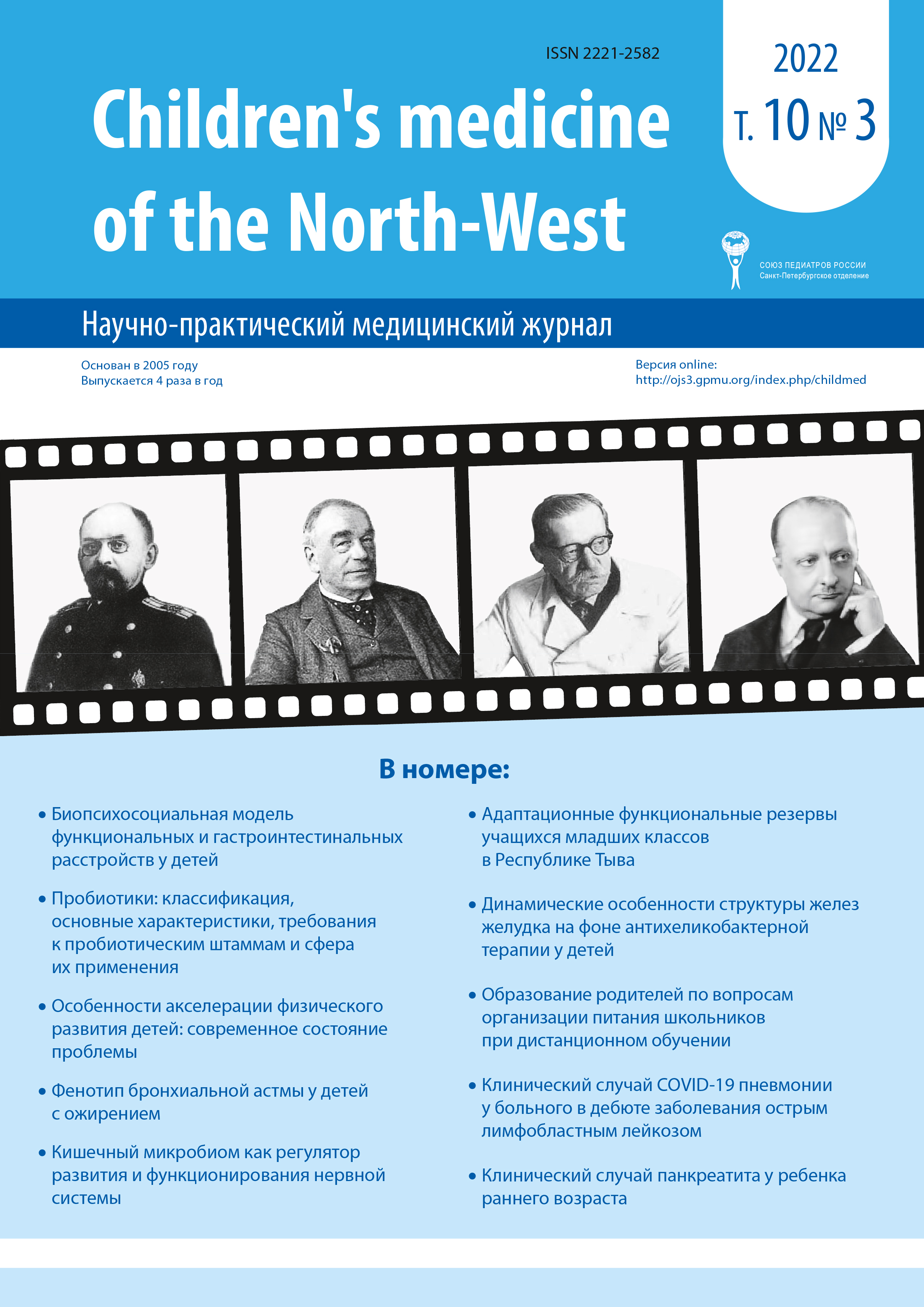BIOPSYCHOSOCIAL MODEL OF FUNCTIONAL GASTROINTESTINAL DISORDERS IN CHILDREN
Abstract
The creation of a biopsychosocial model or paradigm was a significant step in understanding the genesis of not only functional disorders of the gastrointestinal tract, but also other chronic diseases, since it overcame the limitations of the biomedical model. The idea of creating a biopsychosocial model belongs to the scientist, therapist and psychoanalyst G. Engel. The application of the model contributed to the identification of risk factors for the development of diseases, the understanding of multifactoriality and comorbidity as an integral part of pathomorphosis, and determined strategies for diagnosing and treating patients. The lecture describes the importance of the biopsychosocial model both for medicine in general and for pediatric gastroenterology. It is shown that the biopsychosocial model makes it possible to harmoniously consider the complex processes of disease formation, formulate optimal research and therapeutic strategies, and propose scientific principles of prevention. In the future, this model can be organically supplemented by emerging new data from genetics, genomics, and other “omics” technologies in medicine.



